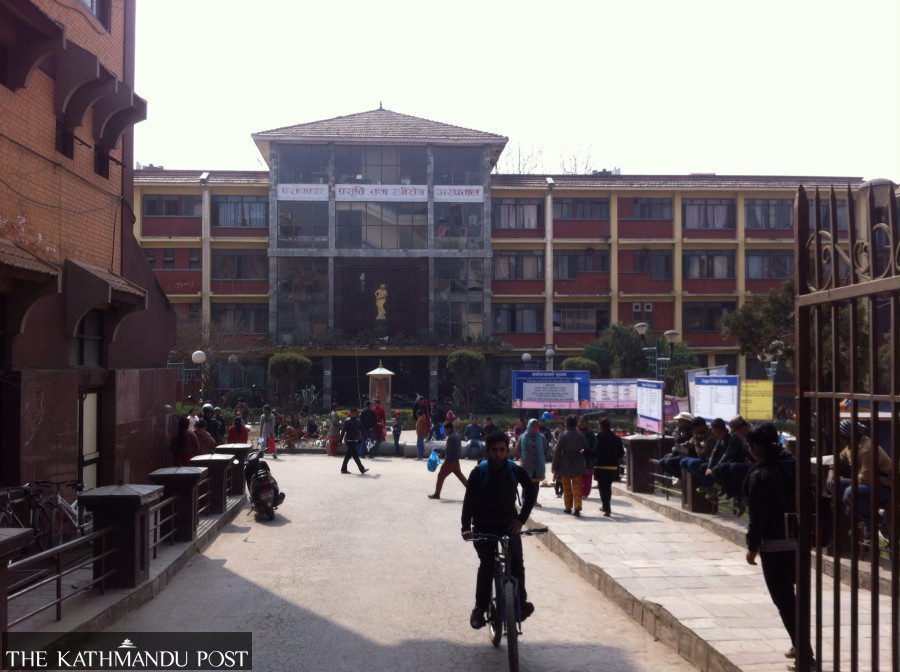Health
Thapathali Maternity Hospital to hold healthy baby contest
Doctors will assess baby growth, health, feeding practices, breastfeeding, immunisation, and parenting practices at the competition.
Post Report
The Thapathali-based Paropakar Maternity and Women’s Hospital is going to organise a healthy baby competition next month with an aim to raise awareness about overall baby development.
Officials at the hospital said that the competition will not only assess physical growth and health of babies, several expert teams will also evaluate feeding practices, exclusive breastfeeding, immunisation, and the use of family planning methods by parents to ensure proper birth interval.
“We would like to request parents of babies born at our hospital in the past year to register their babies for the contest,” said Dr Shree Prasad Adhikari, director at the hospital. “This is also an opportunity for parents to show how their parenting has been yielding positive results.”
The hospital administration, however, said that the contest would be open only to babies born at the maternity hospital.
Around 24,000 babies are born at the hospital each year, with around 39 percent delivered through the Caesarean section.
The hospital administration said the contest will be held on August 13, coinciding with the hospital’s anniversary, and registration will start on July 16. Babies will be assessed in three categories—1 to 45 days, 45 days to six months, and six months to one year.
Doctors say that babies' body mass index will be monitored to assess their growth.
“We will also evaluate exclusive breastfeeding practices, administration of routine vaccines, and use of family planning methods,” said Adhikari. “We will form several teams of experts to assess the babies and award certificates to the top three babies in each category.”
Doctors at the hospital said that the contest would help raise awareness of good parenting, exclusive breastfeeding, healthy feeding habits, the drawbacks of giving junk food to small children, and the importance of using family planning methods to maintain appropriate intervals between births.
Studies show that the exclusive breastfeeding rate in Nepal has been steadily declining over the years. According to the Nepal Demographic and Health Survey-2022, exclusive breastfeeding has been continuously declining from 70 percent in 2011 to 56 percent in 2021.
What concerns health officials is that more educated and well-off mothers are less likely to exclusively breastfeed their babies, as shown by studies.
The report said the proportion of children who are bottle-fed rises with increasing education among mothers, ranging from 12 percent among mothers with no formal education to 49 percent among those with more than a secondary education. The use of a bottle with a nipple is the highest in the highest wealth quintile, at 46 percent, and lowest in the poorest quintile, at 11 percent.
The proportion of children aged 0–5 months who are exclusively breastfed fluctuates across wealth quintiles. The proportion is highest in the lowest wealth quintile—64 percent—and lowest in the highest quintile—44 percent.
The proportion of children who are bottle-fed is higher in urban areas, at 26 percent, than in rural areas, at 15 percent. The use of a bottle with a nipple is lowest in Karnali Province, at 11 percent, and in Madhesh Province, at 12 percent, and the highest in Bagmati Province, at 43 percent.
The report also showed that bottle-feeding practices often start in health facilities. It showed that 22 percent of children born in a health facility receive mixed milk feeding (breast milk and fresh, packaged, or powdered animal milk or infant formula), as compared to 12 percent of those born at home.
The World Health Organisation, however, does not recommend bottle feeding, stating that the nipple on a feeding bottle is susceptible to contamination and increases the risk of diseases among children.
Nepal had committed to increasing the exclusive breastfeeding rate to more than 90 percent by 2030, but the rate declined from 70 percent in 2011 to 66 percent in 2016 and to 56 percent in 2022.
The same report also shows that four percent of children received no vaccination between 2016 and 2021. Experts say feeding practices, exclusive breastfeeding, awareness about the importance of routine vaccination, and the use of family planning methods are basic things that determine not only the health of babies but also their future.




 17.56°C Kathmandu
17.56°C Kathmandu














